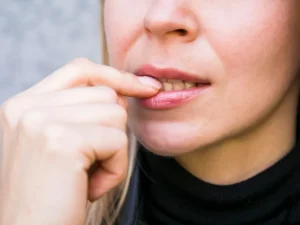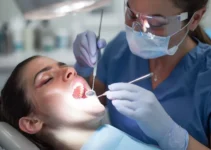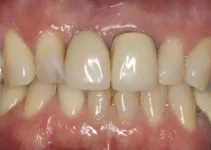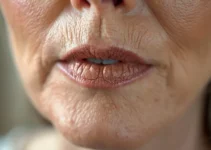Understanding the reasons behind bleeding gums is crucial for maintaining oral health. Often, bleeding gums are a result of poor dental hygiene, leading to plaque buildup and gum disease such as gingivitis. However, other factors like vitamin deficiencies, certain medications, or underlying health conditions can also contribute to this symptom. In this article, we explore the various causes of bleeding gums, how they can affect your overall dental health, and the most effective treatments to alleviate and prevent this troubling condition.
Common Causes of Bleeding Gums
Bleeding gums are a common issue faced by many individuals and can be indicative of various underlying oral health problems. Identifying the root causes of bleeding gums is crucial for effective treatment and prevention. In this article, we will discuss some of the most common reasons behind bleeding gums.
Understanding the reasons behind bleeding gums can help in taking the necessary steps to ensure better oral health. Early detection and intervention can prevent more serious dental conditions from developing. Below, we outline some of the primary causes of bleeding gums.
Poor Oral Hygiene
One of the most prevalent causes of bleeding gums is poor oral hygiene. When dental hygiene practices are neglected, plaque can build up along the gumline. Plaque is a sticky, colorless film of bacteria that forms on teeth. If not removed by regular brushing and flossing, it can harden into tartar, which further aggravates the gums.
Inadequate oral hygiene can lead to inflammation of the gums, a condition known as gingivitis, which is characterized by redness, swelling, and bleeding of the gums. To prevent this, it is crucial to maintain a consistent oral hygiene routine that includes brushing at least twice a day, flossing daily, and using an antiseptic mouthwash.
Gingivitis
Gingivitis is the initial stage of gum disease and is primarily caused by plaque and tartar build-up. When plaque is not effectively removed, it irritates the gums, causing them to become inflamed and prone to bleeding. One of the first signs of gingivitis is bleeding gums, especially when brushing or flossing.
If left untreated, gingivitis can progress to more severe forms of periodontal disease, which can lead to tooth loss and other serious health issues. The good news is that gingivitis is reversible with proper oral care and regular dental check-ups. Key symptoms of gingivitis include:
- Red, swollen gums
- Tender gums that bleed easily
- Persistent bad breath
- Receding gums
Vitamin Deficiencies
Vitamin deficiencies, particularly the lack of vitamins C and K, can also contribute to bleeding gums. Vitamin C is vital for the maintenance and repair of tissues, including gums. A deficiency in vitamin C can lead to scurvy, a condition marked by bleeding gums, weakness, and anemia. Consuming fruits and vegetables rich in vitamin C, such as oranges, strawberries, and bell peppers, can help prevent this deficiency.
Vitamin K plays a crucial role in blood clotting. A lack of vitamin K can impair the body’s ability to clot blood efficiently, leading to prolonged bleeding, including in the gums. Including green leafy vegetables, such as spinach, kale, and broccoli in your diet can help ensure adequate vitamin K levels.
Other nutritional deficiencies that may impact gum health include deficiencies in calcium and magnesium. Ensuring a well-balanced diet with adequate nutrients is essential for maintaining overall oral health.
Now that you are aware of some of the common causes of bleeding gums, it is essential to take proactive measures to maintain your oral health. For more detailed advice and tips on dental care, be sure to explore our other articles.
Effective Solutions for Bleeding Gums
Bleeding gums are a common dental issue that can be a sign of various underlying conditions. Addressing this problem effectively requires a multifaceted approach. This article will delve into several effective solutions, including improving oral hygiene, professional dental cleanings, and dietary changes.
It is essential to understand that bleeding gums are often a symptom of gum disease, which can progress if not treated properly. By implementing the strategies discussed, you can significantly reduce or even eliminate this issue.
Improving Oral Hygiene
The foundation of addressing bleeding gums begins with improving your oral hygiene practices. Poor oral hygiene is a primary cause of gum disease, which manifests as swollen, bleeding gums. To combat this, it is crucial to establish a regular and thorough oral care routine.
Start by brushing your teeth at least twice a day using a soft-bristled toothbrush. Ensure you brush for at least two minutes each session, reaching all surfaces of your teeth and along the gum line. Regular flossing is also essential. Flossing removes plaque and food particles between teeth that a toothbrush cannot reach, helping to prevent gum inflammation.
- Brush twice daily with a fluoride toothpaste.
- Floss at least once a day to remove interdental plaque.
- Use an antimicrobial mouthwash to reduce bacteria.
Professional Dental Cleanings
While good oral hygiene practices are vital, professional dental cleanings play a critical role in maintaining healthy gums. Regular visits to the dentist for cleanings can help remove hardened plaque (tartar) and identify early signs of gum disease. Professional cleanings involve the use of specialized tools that can effectively remove tartar buildup that regular brushing and flossing cannot address. These cleanings are usually performed every six months, but the frequency may be adjusted based on individual needs.
Moreover, during your dental visit, the dentist can offer personalized advice tailored to your specific oral health needs. Regular check-ups not only help maintain healthy gums but also ensure that any potential issues are identified and treated promptly.
Dietary Changes
Your diet significantly impacts your oral health. Certain foods can promote gum health, while others may exacerbate gum problems. Incorporating a balanced diet rich in essential nutrients can strengthen your gums and overall oral health.
Foods rich in vitamins A, C, and D, as well as calcium and magnesium, are particularly beneficial for gum health. For example, fruits and vegetables, dairy products, and lean proteins can help maintain strong gums and teeth. Avoiding sugary snacks and beverages can reduce plaque buildup, which is a leading cause of gum disease.
- Consume fruits and vegetables daily for vitamins and antioxidants.
- Incorporate dairy products for calcium and phosphates.
- Limit sugary foods and drinks to prevent excessive plaque formation.
In conclusion, addressing bleeding gums requires a comprehensive approach that includes improving oral hygiene, scheduling professional dental cleanings, and making beneficial dietary changes. By following these guidelines, you can achieve healthier gums and a brighter smile.
For more detailed information on maintaining optimal oral health, check out our other articles on dental care and prevention strategies.
When to See a Dentist for Bleeding Gums
Bleeding gums can be a sign of various dental health issues. While occasional gum bleeding might not be a cause for alarm, consistent or severe bleeding warrants attention. Identifying the right time to visit a dentist can prevent minor problems from becoming serious health concerns.
There are multiple reasons why your gums might bleed, including improper brushing technique, gum disease, or more severe underlying conditions. Understanding these signs and seeking timely professional advice ensures that your oral health remains optimal. Let’s explore key scenarios when you should definitely see a dentist for bleeding gums.
Persistent Bleeding
If you notice that your gums bleed continuously or frequently, it is a sign that should not be ignored. Persistent bleeding could indicate the presence of gingivitis, an early stage of gum disease, or even more severe conditions like periodontitis. These conditions require professional dental intervention to halt their progression.
Persistent bleeding is often accompanied by other symptoms such as bad breath or a metallic taste in the mouth. Watch for these additional signs and consider scheduling a dental appointment if they occur:
- Bleeding that lasts longer than a week
- Bleeding that occurs even without brushing or flossing
- Gums that bleed heavily or spontaneously
Ignoring persistent bleeding can lead to severe complications, including tooth loss and systemic health issues like cardiovascular disease.
Swollen or Painful Gums
Swelling and pain in the gums often accompany bleeding. These symptoms are potentially indicative of inflammation or infection. Swollen gums might appear red and feel tender to touch, which is a clear sign that your gums are under stress.
The inflammation could result from a buildup of plaque or tartar, leading to irritation and, eventually, gum disease. Pain in the gums may also be a symptom of a deeper issue, such as an abscess or receding gums. Pay attention to the following:
- Gums that feel unusually tender or sore
- Noticeable swelling around the gum line
- Discomfort while eating, brushing, or flossing
Seeing a dentist at this stage can help alleviate pain and prevent further damage. Early diagnosis and intervention are key to maintaining healthy gums.
Signs of Infection
Bleeding gums paired with signs of infection require immediate dental attention. An infection in the gums can lead to significant health issues if not treated promptly. Watch for these critical signs of gum infection:
- Pus or discharge around the gum line
- Severe, throbbing pain in the gums or jaw
- Fever or swollen lymph nodes
Gum infections can spread to other parts of the body and cause systemic issues such as heart problems or diabetes complications. Timely intervention by a dentist can prevent these serious outcomes.
Remember, bleeding gums are a warning sign that something might be wrong. Seeking professional dental advice at the right time is crucial for your overall health. If you’re experiencing any of these symptoms, don’t hesitate to contact your dentist. For more helpful articles on dental health, explore our other resources to stay informed and proactive about your oral care.
Preventing Bleeding Gums
Bleeding gums can be an indicator of various underlying oral health issues, including gum disease. Preventing bleeding gums is crucial not only for the health of your mouth but also for your overall well-being. By understanding and implementing a few key practices, you can maintain healthy gums and prevent problems before they start.
In this guide, we will discuss essential steps that can help you prevent bleeding gums. From regular dental check-ups to maintaining a healthy diet, each of these elements plays a vital role in oral health. Let’s delve into the details.
Regular Dental Check-ups
One of the most effective ways to prevent bleeding gums is by scheduling regular dental check-ups. During these visits, your dentist can identify early signs of gum disease, which can often go unnoticed at home. Professional cleanings remove plaque and tartar build-up that regular brushing and flossing might miss.
According to studies, individuals who visit their dentist at least twice a year are less likely to develop severe gum disease. Your dentist can also provide tailored advice and techniques for maintaining optimal oral health. Regular check-ups allow for early intervention, making it easier to treat issues before they become more serious.
Furthermore, consistent dental visits can help monitor other potential health conditions. Gum disease has been linked to systemic diseases such as diabetes and cardiovascular problems. Therefore, keeping up with your dental appointments is a key component of overall health management.
Proper Brushing Techniques
Proper brushing techniques are essential for preventing bleeding gums. Using a soft-bristled toothbrush and fluoride toothpaste, brush your teeth at least twice a day. Ensure that you are gently massaging your gums rather than applying excessive force, which can cause gum irritation and bleeding.
Effective brushing involves more than just scrubbing your teeth back and forth. Aim to brush at a 45-degree angle to your gums and use small, circular motions. Don’t forget to clean the inner surfaces of your teeth and your tongue, which can harbor bacteria.
Flossing daily is another critical component. It helps remove food particles and plaque from between your teeth and under the gumline, areas that your toothbrush cannot reach. For optimal results, consider using tools such as interdental brushes or water flossers, which can be especially effective for people with braces or dental implants.
Maintaining a Healthy Diet
Your diet plays a significant role in the health of your gums. Consuming a balanced diet rich in vitamins and minerals can strengthen your immune system and enhance your body’s ability to fight off infections, including gum disease. Vitamin C and calcium are particularly beneficial for gum health.
Reducing your intake of sugary foods and beverages is also crucial. Sugar promotes the growth of bacteria in the mouth, which leads to plaque formation and increases the risk of gum disease. Instead, opt for foods that are low in sugar and high in fiber, such as fruits, vegetables, and whole grains. Additionally, staying hydrated by drinking plenty of water helps keep your mouth clean. Water rinses away food particles and bacteria, reducing the risk of plaque build-up. Chewing sugar-free gum can also stimulate saliva production, which is your body’s natural defense mechanism against oral bacteria.
By incorporating these dietary habits into your daily routine, you can significantly improve your gum health and reduce the likelihood of bleeding gums.
Prevention is always better than cure, and this is especially true when it comes to oral health. For more insightful tips and advanced techniques to maintain a healthy mouth, be sure to explore our other articles. Your journey towards optimal oral health continues here!
Understanding the Causes Behind Bleeding Gums
Bleeding gums are a common issue that can cause concern and discomfort. Knowing the causes can help you tackle the problem effectively.
What are the primary causes of bleeding gums?
Bleeding gums are often a result of inflammation caused by plaque build-up at the gumline. This condition, known as gingivitis, is the most common cause. Other factors include improper or aggressive brushing, inadequate flossing, certain medications, nutritional deficiencies, and underlying medical conditions such as diabetes and heart disease. Regular dental check-ups and proper oral hygiene are essential in preventing and treating bleeding gums.

My name is Salman Kapa, a 73-year-old expert in bone regeneration and dental implantology. With decades of experience in the field, I am dedicated to advancing our understanding of oral health and hygiene. Through my research and writing, I aim to contribute to the development of innovative solutions in dental care.




